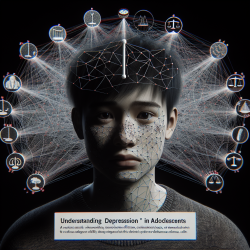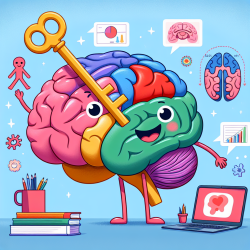Empowering Practitioners: Enhancing Skills for Supporting Families with Developmental Coordination Disorder
As practitioners in the field of speech-language pathology, it is essential to continually refine our skills and approaches to better support children and their families. The recent study, "Journeying with developmental coordination disorder: The family experience," provides valuable insights into the challenges faced by families with a member diagnosed with developmental coordination disorder (DCD). This blog aims to highlight key findings from the study and suggest practical strategies for practitioners to implement in their practice.
Understanding the Familial Impact of DCD
DCD is a neurodevelopmental disorder affecting 5-6% of children, with 50-70% continuing to experience difficulties into adulthood. The study revealed that families often face significant challenges in obtaining a diagnosis and navigating healthcare and education systems. Upon diagnosis, families experience a mix of relief and ongoing stress due to the daily challenges posed by DCD.
Key Findings and Practical Strategies
- Diagnosis and Support Frustrations: Families often encounter long delays and dismissive attitudes from healthcare professionals. As practitioners, it is crucial to be knowledgeable about DCD and provide clear diagnostic pathways. Collaborate with other healthcare professionals to ensure a comprehensive and timely diagnosis.
- Financial, Emotional, and Relational Stress: The financial burden of therapies and reduced work hours can strain families. Practitioners should advocate for accessible services and provide information on available resources. Offering emotional support and counseling to families can help them cope with the stress and challenges.
- Isolation: Families often feel isolated due to a lack of understanding of DCD. Raising awareness about DCD in schools and communities can help alleviate this isolation. Encourage peer support groups and connect families with others who share similar experiences.
Encouraging Further Research
The study highlights the need for further research into specific support strategies for families, particularly in contexts with unequal access to healthcare and education. Practitioners can contribute to this research by documenting their experiences and outcomes, sharing best practices, and collaborating with researchers to develop evidence-based interventions.
Conclusion
By understanding the multifaceted impact of DCD on families and implementing the strategies suggested, practitioners can significantly improve the support provided to children with DCD and their families. It is our responsibility to stay informed, advocate for our clients, and contribute to the growing body of research on DCD.
To read the original research paper, please follow this link: Journeying with developmental coordination disorder: The family experience.










